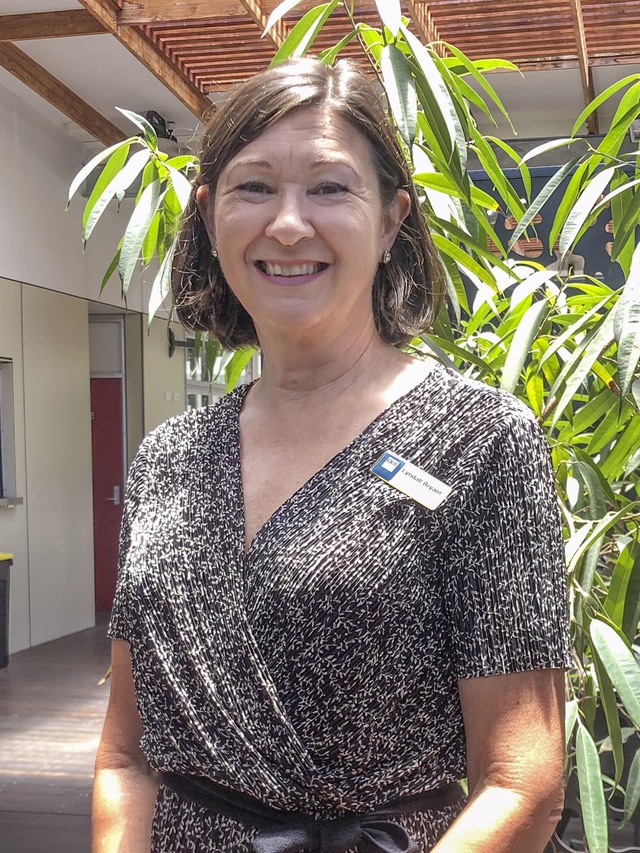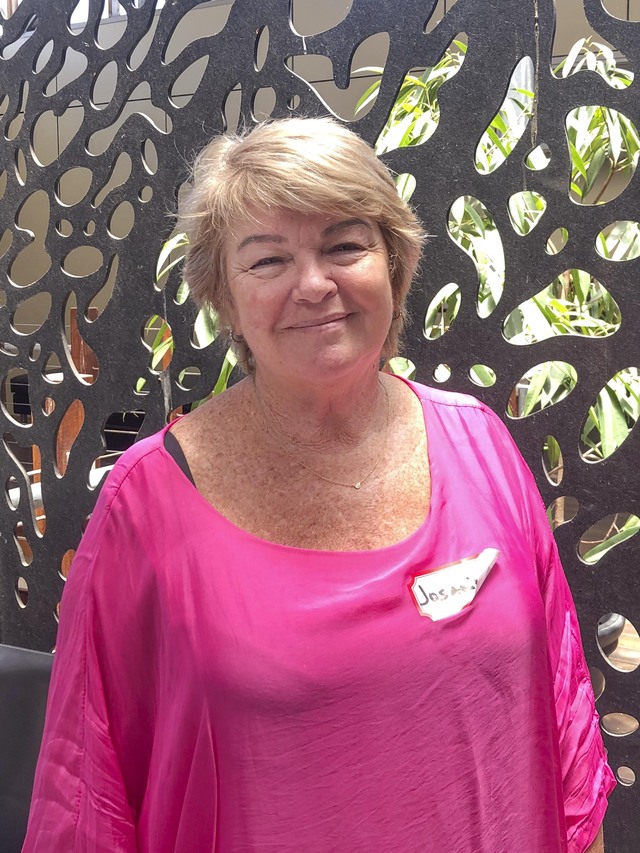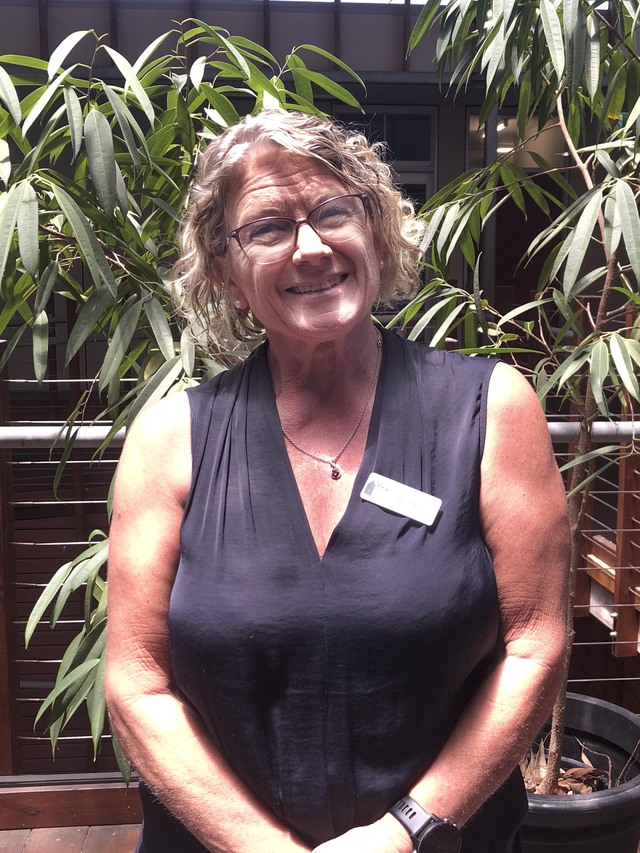Taking in lodgers was one of the options raised last week when for the first time three lead organisations came together at The J Theatre to discuss affordable housing needs in Noosa, particularly for older women, and possible solutions.
Better Together Housing, an organisation that supports women 55 years and over facing homelessness and housing insecurity, the QUT Housing Security Research Group, and WomenKind, a local group which tries to support women and children around housing and homelessness, connected face-to-face to talk about what needs to happen around this issue.
“There’s not just one answer, there’s many, many answers,“ Better Together Housing shared living for women 55 years and over program lead Maggie Cairns said.
“It’s very crucial that we talk to the people living this experience because they’re the experts, they know what needs to happen. It’s incredibly valuable for (QUT) to gather the evidence to show what people of lived experience, older women specifically, what their lived experience says of the difficulties of finding affordable accommodation in this region.“
QUT AHURI Research Centre director and QUT Housing Security Research Group Leader Dr Lyndall Bryant suggested in a recent briefing paper for the QUT Centre for Justice that, at least in the interim, Australia’s 13 million spare bedrooms ought to be part of the solution.
She is conducting further research to explore the concept of using spare bedrooms to help ameliorate the rental crisis, particularly matching older women with older women.
“Everyone knows we have a housing crisis, a rental crisis, but Australia actually has 13 million spare bedrooms so we’re trying to work out ways to match the spare bedrooms with the people in need,“ she said.
“This is more the concept of matching home owners, getting them to take in a boarder and then to share house that way, and often you’re talking about an older demographic who own their own home. They may or may not have shared houses in their youth, they may not know what share housing is all about, they may have fears about losing their pension, how it might impact capital gains tax and things like that.
“So if we can overcome some of those fears and some of those barriers we can try to normalise the concept of share housing later in life as a way of building community and just creating an alternate affordable rent option and also helping with the cost of living for people who may be asset rich and cash poor.
“It’s also the companionship piece rather than living alone and the environmental piece, instead of knocking down trees and building new estates. You can use the existing housing.“
Through an online survey launched about a month ago the researchers have sought input into the concept from both people who have a home with a spare bedroom they’re looking to offer to somebody and others who are looking to enter into that sort of arrangement.
There have been more than 120 respondents so far with about a 50-50 response rate.
“What’s nice about early findings from people who have a home to offer there’s a high incidence of people saying it’s not just the money, it’s the right thing to do,“ Dr Bryant said.
She said there was no provision under current tenancy legislation to cover a homeowner bringing in someone into the spare bedroom as a boarder or lodger for any cohort including older women or homestay students and they would like to see some.
“(Without it) that creates risks and unsafe environments and that’s not a good thing. We’re just trying to normalise home sharing and create some frameworks around it so people who are interested in them it’s easier to investigate or enter into, it’s easier to potentially matching parties and that interest becomes a culturally natural thing to do like it is in other countries,“ she said.
“In Ireland, the government established what’s called a rent a room scheme. Under that scheme any homeowner in Ireland can rent out one of their rooms and they can earn up to 40,000 Euro a year and it’s not taxable income and just uses existing housing.“
Ms Cairns said of the women facing homelessness or housing insecurity they speak to, a common thread is they feel invisible, hidden, they are doing so much to pretend they’re not in this situation because most people in their lives don’t understand.
“They’re very ashamed and therefore when they come to us and they sit with each other for the first time they may feel safe and able to say what’s really going on and that’s the beginning of the change because then they can lay all their cards on the table, they can understand they’re not the only ones and they can start to go, OK what do we need to do,“ she said.
“In past six months we’ve had 20 plus amazing outcomes where women have come in in a desperate situation, a variety of situations and through our connections and our support and coordination they’ve all found individual levels of success. Some or those have navigated social housing, some are living with other women, some are getting support around how on earth to apply for rental in this current situation.
“Currently one in 10 older women 55 years and over are experiencing housing insecurity or homelessness. It’s the fastest growing cohort of homeless people. Before the pandemic in older women homelessness had increased by over 35 per cent and it has dramatically increased.
“We have women coming to us, they’re never needed welfare. They’re never experienced any kind of poverty or difficult situations. They’re always managed to get by but when you’re on a pension which is about $520 a week or Jobseeker and you cannot find any kind of housing for $400 a week if you’re by yourself and that’d be like finding a needle in a haystack. We have women whose rents have gone up hundreds of dollars very suddenly. They say my job was to look after family. I’ve cared for my parents, cared for children, cared for my husband. We didn’t get taught about gathering superannuation. I’ve come from a time when I wasn’t even allowed to be pregnant and be in a job or to have a bank loan when I got married. This has been written on the cards for a very long time. Even today there’s still inequity around pay gaps, so many things. I feel the older women are the matriarchs, the elders, the knowledge keepers. They have cared for communities and they say I feel like I’ve been put out to pasture and it’s not OK.“
Ms Cairns said a recent PhD study of shared living in Germany showed to the level you get success for shared living that has positive long term outcomes is to the level that there is facilitation, coordination and match arrangement.
“Organisations that have minimum employees have minimum outcomes, organisations that are a little bit bigger have incredible outcomes,“ she said.
Resources are a concern for Better Living Together whose Queensland government funding runs out the middle of next year.
Josanne Falla of WomenKind said housing affordability was one of the big issues for Noosa.
She said since being made aware of the situation WomenKind had been raising money and talking to other organisations including Youturn, Salvation Army, Noosa Council, Better Housing Together about possible solutions.
“We hold an event and the money goes into the bank. The idea in the beginning was for a tiny home with the Salvation Army. They had a property we could put a tiny home on. They didn’t get the grant from state government to do that so now we’ve gone to look at every other avenue we can to get a home,“ she said.
Ms Falla said WomenKind focused their attention on women in transition who were needing homes coming from homelessness or DV.
“We have people come to us. We can offer legal advice up to six hours free. We can offer through our fundraising, crisis care, psychological care. We’ve got taxation advice if they have financial needs, which they often have and investment. But our main goal is housing, how do we create housing in Noosa.“
Ms Falla said many women have told them they want their own space so they are looking at the possibility of converting houses into self-contained spaces.
“Women are the queen of their home so we need to find a way we can infill some houses. So we buy a three bedroom and house and maybe create five separate studios within that one house so everyone has their own bathroom, their own kitchen,“ she said.
“Perhaps we can’t afford to purchase but maybe we could lease. There are so many good ideas. It’s about getting them happening. We do have some issues with council planning. They put a lot of rules and boundaries so we can’t get more houses built. There’s big issues. It’s about how to fix it.“
Also at the event was Robyn Sanders of Women’s Shed.
Having established their own space at Noosa Women’s Shed is aiming to run workshops to teach women to use tools, gain confidence and be more independent in their own homes.











